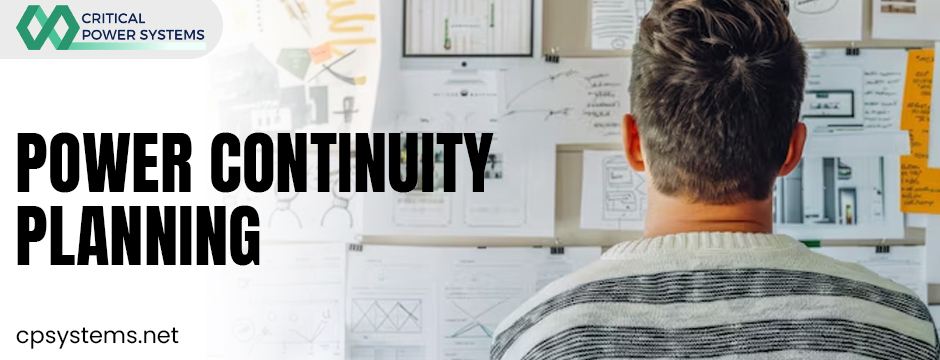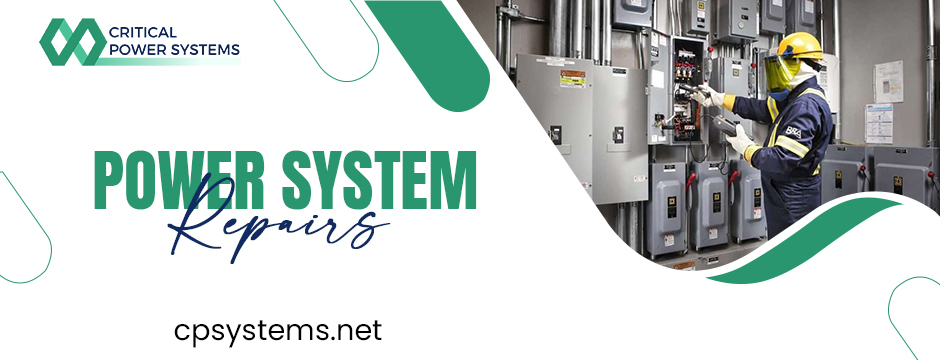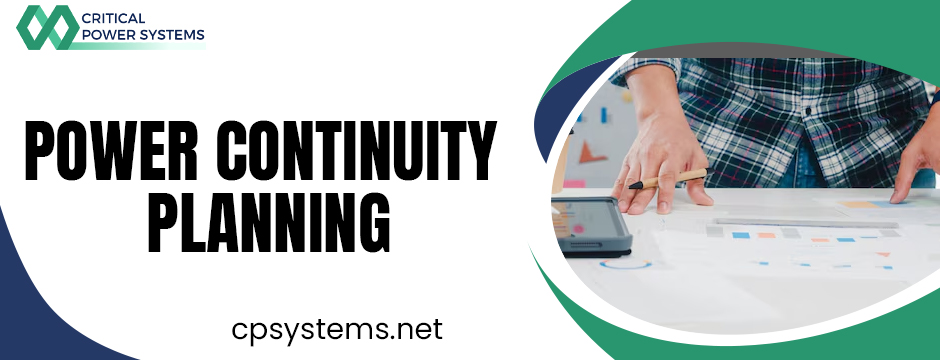It used to be that backup power was something you thought about after a major outage—something for hospitals, data centers, or massive corporate buildings. But in 2025, the game has changed. Backup power isn’t a “just-in-case” anymore. It’s now part of everyday business planning.
From unpredictable weather patterns and skyrocketing energy demand to the way we rely on AI and remote systems to stay productive—power continuity planning is no longer optional. If your business doesn’t have a plan, it’s already behind.
At Critical Power Systems, we’ve been helping businesses across industries protect their operations against power interruptions. And this year, we’re seeing more urgency than ever. Let’s unpack why.

Unpredictable Weather Isn’t a Future Problem—It’s Here Now
Talk to anyone who’s run a business in the last two years and they’ll tell you: weather events are hitting harder and more often.
Storms that used to be “once in a decade” are now happening annually. Heatwaves are straining the grid. Wildfires and floods are knocking out infrastructure with barely a warning. And for companies relying on consistent uptime, every hour without power means lost revenue—and worse, lost trust.
Many of our clients tell us the same thing: they didn’t realize how vulnerable their operations were until they experienced a blackout first-hand. That’s why smart companies are investing early in reliable, layered backup systems—so that next time, they’re ready.
Power continuity planning isn’t about fear. It’s about foresight. And in today’s world, that makes all the difference.
AI Runs Everything. And AI Doesn’t Like Downtime.
Whether you realize it or not, artificial intelligence is running your business in some way. From automated chatbots and marketing platforms to backend data processing and inventory tracking, AI systems need a steady flow of power to function properly.
Here’s the issue: AI tools aren’t built to “pause.” When the power cuts out, your systems don’t just stop—they crash. That means corrupted data, lost transactions, failed predictions, and errors you won’t even notice until it’s too late.
Worse still, a short interruption can derail processes that take hours or days to recover. So if your operations depend on any kind of automation or intelligent software, power interruptions aren’t just annoying—they’re dangerous.
That’s why power continuity planning is crucial for any AI-reliant setup. We’ve helped dozens of companies protect their machine learning systems with seamless UPS solutions, onsite generators, and advanced monitoring to keep everything running clean—even when the grid goes dark.
Remote Work Needs Stable Power—Even If the Team Isn’t in the Office
Let’s talk about remote work. It’s not going anywhere. In fact, many businesses are now fully remote or hybrid—and they rely heavily on servers, VPNs, cloud platforms, and secure access tools to keep everything connected.
What happens when your office network goes down due to a power outage? Your remote employees get stuck. They can’t access files. Meetings get cancelled. Work grinds to a halt.
This isn’t a hypothetical. We’ve had clients call us in a panic after losing power in a storm, because their remote teams couldn’t even log in to update their status.
That’s why continuity planning has to include not just backup power, but fast power system repairs, remote monitoring, and intelligent switchovers. You want your infrastructure working for your team, not holding them back.
No Power = No Sales, No Service, No Business
At the end of the day, it’s simple. If you lose power, you lose business. That’s not an exaggeration. Today’s customers expect speed, availability, and reliability. If they can’t place an order, check a balance, or get support because your systems are down, they’ll move on—fast.
One of our retail clients put it best: “When we lost power for 6 hours, we didn’t just lose sales. We lost confidence.” And they’re not alone. The cost of just one unplanned outage can be thousands—even millions—depending on your industry.
That’s why we tell our clients: don’t look at continuity planning as an expense. Look at it as insurance for your brand, your reputation, and your bottom line.
What a Modern Power Continuity Plan Looks Like
The good news? You don’t need to figure this all out on your own. A solid continuity plan doesn’t have to be complicated—but it does need to be tailored to your business.
Here’s what we usually recommend:
- A thorough power audit: Know what you need to protect and how long you can afford to be offline.
- UPS systems for instant response: These kick in immediately when the grid drops, so your systems don’t feel a thing.
- Standby generators: These take over for longer outages, keeping you running for hours—or days.
- Scheduled inspections & power system repairs: Preventive maintenance keeps your backup systems ready when it matters.
- Remote monitoring tools: See issues before they become emergencies with live status dashboards and alerts.
- Training for your team: Everyone should know what to do when the lights go out—and how to get them back on.
At Critical Power Systems, we help businesses build real, actionable plans based on their actual needs—not just cookie-cutter setups.
Why Clients Choose Critical Power Systems
We’re not a faceless corporation selling generators. We’re a team that gets into the trenches with you. We’ve worked with manufacturers, healthcare providers, schools, law firms, construction companies—you name it.
What sets us apart?
- We don’t just install systems—we build partnerships.
- We respond quickly when things break, offering reliable power system repairs when it counts.
- We offer flexible, scalable solutions that grow with your business.
- We work with you to create a custom roadmap that keeps your operation running—no matter what.
When you work with us, you’re not just buying equipment. You’re buying peace of mind.

Investing in Continuity Isn’t a Cost. It’s a Commitment to Growth.
Here’s what most people don’t realize: power continuity is more than just an emergency backup plan. It’s a signal to your clients, your team, and your investors that you’re serious about staying reliable, no matter what comes your way.
It tells your staff they won’t be left scrambling. It tells your customers you’ll be there when they need you. And it gives you, the business owner or operations leader, a sense of calm that you’re ready—even for the unexpected.
Final Thoughts: The Time to Act Is Before the Power Fails
If there’s one thing we’ve learned from the last few years, it’s this: waiting until a blackout to think about backup power is like shopping for flood insurance while your basement’s already under water.
The businesses that are thriving in 2025 are the ones that planned ahead. They didn’t wait for a crisis to make changes. They saw what was coming—and got ready.
So, whether you’re a small business owner looking for a basic setup or a facilities manager responsible for a 100,000-square-foot operation, now is the time to act.
Let Critical Power Systems help you build a power continuity plan that doesn’t just keep the lights on—but keeps your business moving, no matter what.
FAQs
1. What does power continuity planning really mean for my business?
It’s the process of making sure your business stays operational during power outages, grid failures, or natural disasters. It includes backup systems, maintenance, and emergency protocols.
2. I already have a generator. Is that enough?
Not always. Generators are just one piece of the puzzle. A full power continuity plan also includes UPS systems, monitoring, testing, and scheduled power system repairs.
3. Is this just for big companies?
Absolutely not. In fact, small businesses often suffer more from outages. Whether you run a retail shop or manage remote teams, you need a plan that matches your setup.
4. How do I know if my current backup setup is working?
That’s a great question—and one we hear often. We recommend a professional audit to test your current system, identify gaps, and optimize performance before problems arise.
5. Can power continuity planning help me go green too?
Yes. Many businesses are now integrating solar and battery storage into their continuity plans. We can help you build a system that’s both reliable and eco-friendly.

